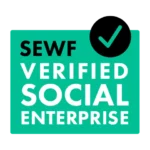On October 21 2021, I took great delight in interviewing Leisl Ohai from Outland Demin. Outland is a leading apparel brand that over the past decade has worked tirelessly to provide clothing that is made with respect for the environment, for worker rights, and for the local economies within which it operates.
There isn’t any magic to being responsible and no wishful thinking. Whether you are an existing brand or a budding entrepreneur looking to become like Outland, being responsible requires a deep investment and a commitment to the long-term.
In talking with Leisl, she identified four main ingredients for success:
1. Genuine Desire: Business leaders need to have a genuine desire to be responsible in the sourcing and manufacturing of ethical products. Having a clear why and strong conviction will enable you to ride the levels of complexity and challenges before you.
2. Enduring Approach: Business leaders need to take an enduring approach to due diligence. Staged audits will not give the assurances you need. Rather, through a commitment to relationships, listening and empathy, you will gain the trust needed to verify the risks of modern slavery.
3. Collaboration: Business leaders need to collaborate with likeminded brands, industry peers and NGOs to increase transparency and traceability. Doing something significant comes through the collective use of power.
From my perspective, being responsible takes a lot of commitment that many leaders are not always willing to take. In this sense, to be a responsible brand cannot just be a ‘good idea’ or a ‘nice to have’… it’s a lifelong investment of time, money and resources. Are you up for the challenge?





